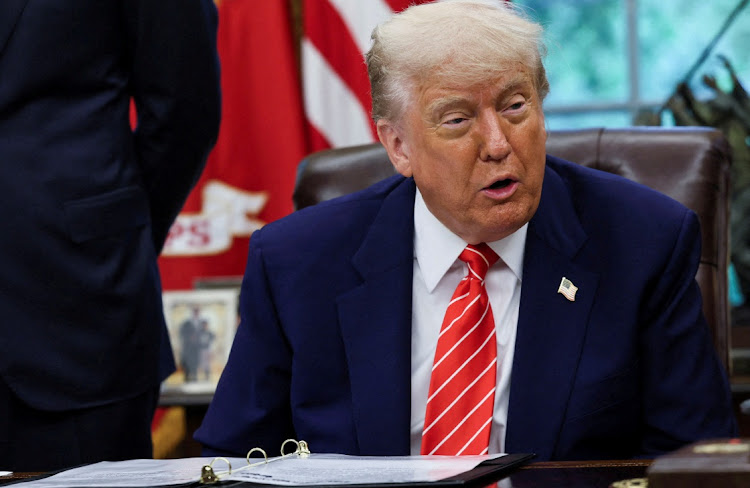Trump’s first 180 days: critical minerals, Africa and a new trade doctrine

Shift to commercial diplomacy is a promising step towards integrating African nations into global economy
US President Donald Trump has been in office for six months, so I thought this week would be a good time to share a few reflections on key policy developments from a Washington standpoint.
I’ll focus on three areas: Africa, critical minerals and tariffs.
First, the Trump administration’s focus on commercial diplomacy in Africa is a good thing. US engagement on the continent has traditionally emphasised aid and security, but has done little to drive investment, develop infrastructure or drive economic growth.
Earlier this year, Democratic Republic of Congo (DRC) president Félix Tshisekedi made headlines by offering the US access to critical minerals in return for security support as tensions rose with Rwandan-backed M23 rebels.
Just four months later, after intense negotiations in Washington and Doha, the DRC and Rwanda signed a peace deal on June 27 in Washington.
The US and DRC are now laying the groundwork for a regional economic framework and a formal partnership on mineral co-operation, which will have a strong infrastructure component.
To be clear, aid — especially through programmes such as the President’s Emergency Plan for Aids Relief (Pepfar) to fight HIV — remains essential and cuts across the aid board have undermined our soft power. But the shift towards commercial diplomacy is a promising step towards integrating African nations into the global economy.
In July Trump hosted the leaders of five African countries — Gabon, Guinea-Bissau, Liberia, Mauritania and Senegal — in Washington, where one of the central topics was strengthening bilateral co-operation on oil and minerals. The US International Development Finance Corporation — our state-financing agency — has already inked two financing deals for minerals projects in Africa.
Second, the administration has placed a strong emphasis on strengthening minerals security, adopting an “all of the above” strategy. Domestically, it has moved to fast-track mining by cutting permitting timelines, made an unprecedented investment by becoming the largest shareholder in a rare earths company, and ramped up funding for strategic mineral stockpiles. It has also advanced the deep sea mining through a new executive order.
Internationally, critical minerals have been central to deals between the US and countries such as Saudi Arabia, Ukraine and the DRC — and are increasingly being embedded into bilateral trade agreements. The US has also taken an active role in shaping the multilateral minerals agenda, with its priorities prominently reflected in this year’s G7 discussions.
Third, though US tariff policy has often been inconsistent and created uncertainty in the market, the latest series of bilateral minerals agreements is showing encouraging progress. This week, both Indonesia and Japan finalised trade deals with the US.
In Indonesia the agreement removed trade barriers on more than 99% of US goods on a preferential basis and tackled key nontariff barriers, such as exempting US exports from local content rules. It also strengthened rules of origin to ensure the benefits stay between the US and Indonesia, implicitly excluding third countries such as China.
The deal made significant strides on aligning both countries on broader economic security goals, including efforts to boost supply chain resilience and critical mineral co-operation. The deal also includes commitments to advance significant commercial partnerships in agriculture, aerospace and energy.
Though Trump has not been a strong advocate for environmental, social & governance standards, he signed an agreement requiring Indonesia to improve labour protections by banning imports produced with forced labour and removing legal barriers to union rights and collective bargaining.
As someone who is professionally non-partisan I’ve had the privilege of working closely with both the Biden and Trump administrations. In a time marked by deep division and political finger-pointing, it’s important to take a step back and recognise where efforts are yielding productive gains.